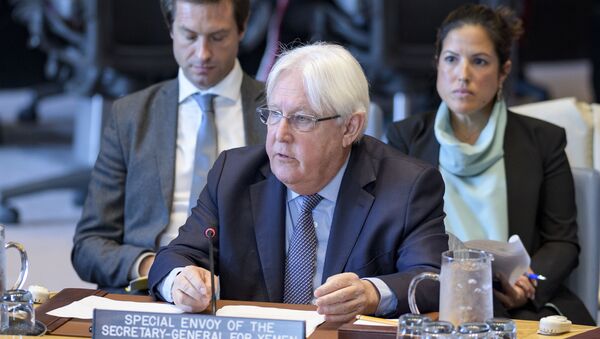“I congratulate the Government of Yemen and the Southern Transitional Council on reaching an agreement on the way forward,” Griffiths said. “The signing of this agreement is an important step for our collective efforts to advance a peaceful settlement to the conflict in Yemen.”
The agreement stipulates the return of the Hadi government to the capital Aden, which was seized by the STC forces in August; unifying the two sides’ militaries under a central command; and establishing a government with equal power-sharing.
Griffiths emphasised the importance of listening to the needs and suggestions of stakeholders in the south of the country and expressed hope the agreement will promote stability in and around Aden and improve the lives of the Yemeni people.
Earlier on Tuesday, the Yemeni government and the STC signed in Riyadh an agreement under the auspices of Saudi King Salman bin Abdulaziz Al Saud and Crown Prince Mohammed bin Salman. Yemeni President Abdrabbuh Mansour Hadi, STC President Aidarus Zoubaidi attended the signing of the agreement.
Last summer, the STC seized Aden and other areas in the south of Yemen reportedly with the backing of the United Arab Emirates (UAE). Hadi harshly criticized the UAE and demanded its forces be excluded from the Saudi-led Arab coalition operating in Yemen.
Yemen has been engulfed in an armed conflict between the government forces, led by President Abdrabuh Mansour Hadi, and the rebel Houthi movement for several years now.
The Saudi-led coalition has been carrying out airstrikes against the Houthis at Hadi's request since March 2015. The conflict has resulted in a massive humanitarian crisis in the war-torn country.
The conflict has been described by the United Nations as the world’s worst humanitarian crisis, with an estimated 24 million people - nearly 80 per cent of the Yemeni population - currently in need of aid and protection.


